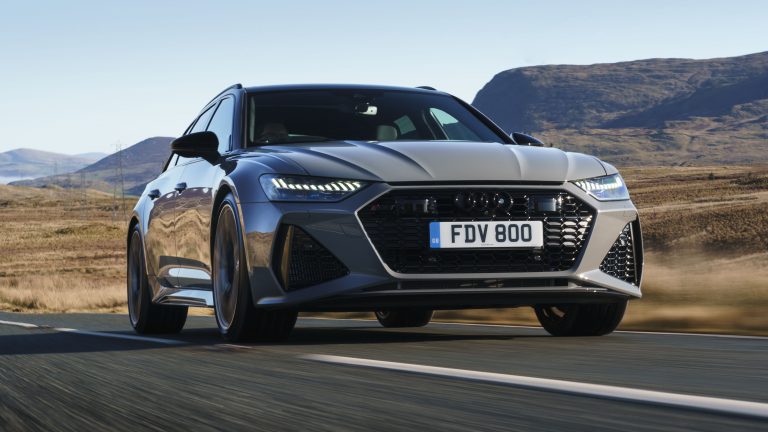Hyundai Ioniq Best and Worst Years (Top Picks!)
Since its launch in 2016, the Hyundai Ioniq has drawn the interest of environmentally conscious motorists with its effective hybrid and electric powertrain options, making it a well-liked option for those seeking a greener driving experience.
Not all model years are created equal, though.
In order to assist you in making an informed purchase decision, we examine the best and worst Hyundai Ioniq model years in this article.

Hyundai Ioniq Best and Worst Years
The best years for the Hyundai Ioniq, according to the search results, are generally regarded as the 2018–2022 models. These decades are praised for their dependability as well as their affordability and fuel efficiency. The Hyundai Ioniq’s impressive powertrain warranty, cargo carrying capacity, and technological features make the 2020 model year one of its best. The Hyundai Ioniq’s worst years are those between 2017 and 2021, when more problems and complaints, particularly with the electrical system, were reported.
To make sure you are getting a dependable and well-equipped Hyundai Ioniq, it is crucial to conduct research on the particular model year and trim level you are interested in.
Which Years of the Hyundai Ioniq Are the Most Reliable?

Analyzing a number of variables, such as customer reviews, industry evaluations, and dependability ratings, is necessary to determine the most dependable Hyundai Ioniq years.
Certain model years have developed a reputation for their dependability and durable performance, while individual experiences may differ.
The following Hyundai Ioniq years have been identified as some of the most dependable based on available data and expert assessments.
Hyundai Ioniq from 2020 to 2022
Several aspects that contribute to the dependability of the 2020–2022 Hyundai Ioniq models stand out when talking about reliability.
Solid structure: Hyundai has given the Ioniq careful consideration during construction, using premium materials and exact technical methods.
Owners have consequently noted less structural and mechanical problems, which is evidence of the car’s robustness and lifespan.
Powertrains with high levels of efficiency: Whether you choose a hybrid, plug-in hybrid, or electric model, the seamless integration of electric motors and internal combustion engines enables a seamless transition between power sources.
This helps to ensure a safe and dependable driving experience.
Modern technology: Hyundai has included a number of state-of-the-art safety measures to these cars. These elements encourage confidence and add to the overall dependability of the vehicle by actively reducing potential risks.
The easy-to-use infotainment system puts an emphasis on user-friendly interfaces and includes touchscreen displays, smartphone integration (such Apple CarPlay and Android Auto), and speech recognition technologies.
By reducing distractions and enabling drivers to concentrate on the road, these devices improve the overall dependability of the car.
Warranty coverage: This gives Ioniq owners further assurance. The warranties offer assurance and show Hyundai’s dedication to supporting the dependability of its cars.
Combining the aforementioned elements, the 2020–2022 Hyundai Ioniq models have proven to be solid choices for environmentally aware motorists looking for cutting-edge technology and peace of mind on the road.
Ioniq 2019 Hyundai
Consumers gave the 2019 Hyundai Ioniq relatively favorable ratings.
It’s crucial to keep in mind that the 2019 Hyundai Ioniq Electric hatchback model has been recalled, which may have an effect on its dependability.
To remedy a potential unintended acceleration issue, a recall of 2,679 Hyundai Ioniq Electric hatchbacks from model years 2017 through 2019 was started.
The affected vehicles could enter a fail-safe mode that could result in unexpected acceleration once the accelerator pedal is released, which is what led to the recall because of an unstable electrical ground.
Through media accounts of claimed unintentional acceleration in the Korean market, Hyundai learned about this problem. It’s important to note that Hyundai claimed not to be aware of any collisions or injuries connected to this problem.
Hyundai dealerships promised to update the car’s software and fix the ground wiring for no cost in order to fix the issue.
The recall is normally announced to owners by mail, along with information on when to bring their cars into dealerships for the required fixes.
To safeguard the safety of their vehicles, owners of the recalled 2019 Hyundai Ioniq Electric models must abide by the recall notice and get the repairs made as soon as possible.
Review the vehicle’s recall status before considering buying a used 2019 Hyundai Ioniq to be sure that any required recalls or repairs have been attended to by the previous owner or dealership.
As always, a thorough inspection and investigation into specific vehicle histories will help you get a better idea of the condition of the vehicle and any potential problems.
Ioniq 2018 Hyundai
Based on available information and user reviews, the 2018 Hyundai Ioniq has shown promising reliability despite being an earlier model.
The 2018 Ioniq’s owners have reported few problems and high levels of satisfaction, which is indicative of a good ownership experience.
A strong foundation for long-term durability is provided by the product’s durable construction and premium materials.
The 2018 Ioniq’s cutting-edge safety and technological features add to its dependability. Buyers might anticipate safety innovations like:
- Ahead of crash caution
- A lane-keeping aid
- Blind-spot observation
- Autonomous cruise control
It’s critical to take into account any potential differences between the 2018 Hyundai Ioniq and the previously described 2020–2022 models when assessing their reliability.
There are some significant differences to be aware of even if the 2018 Ioniq retains the fundamental qualities of sturdy construction, effective powertrains, and cutting-edge technology found in the later generations.
One significant distinction is that the 2018 model is an earlier version of the Ioniq, thus it might not benefit from some updates and improvements made in later years.
The 2020–2022 Ioniq models might therefore have undergone certain improvements and updates to better dependability, performance, and overall user experience based on the lessons learned from past models, given that Hyundai consistently tries to improve dependability.
As a little older model than more recent models, the 2018 Ioniq would require various considerations for maintenance and possible wear and tear.
Which Hyundai Ioniq model years ought to be avoided?

Although Hyundai’s Ioniq models have often received favorable evaluations, there have been a few years where there have been problems or there has been conflicting feedback.
It’s crucial to remember that these worries could change depending on particular model years.
However, according to industry experts and owner satisfaction, the years after that have been linked to a few issues that prospective buyers might wish to take into account.
Ioniq 2017 Hyundai
With a considerable amount of complaints filed on CarComplaints.com, the 2017 Hyundai Ioniq has drawn some attention due to reliability issues.
Although it’s important to keep in mind that every person’s experiences are unique, the sheer volume of complaints for this specific model year raises the possibility that some of the problems documented by owners may have been widespread.
The transmission of the 2017 Ioniq was one of the main issues. Several owners mentioned the following transmission issues:
- Uneven shifting
- Hesitation
- Transmission breakdown
These problems generated concerns about the vehicle’s long-term dependability in addition to affecting the overall driving experience.
The audio system was the subject of several complaints, including intermittent or complete sound loss, broken controls, and even total system failure.
Premature brake pad wear was another issue with the 2017 Ioniq that was reported. Many owners reported having to replace their brake pads considerably sooner than anticipated, which raised questions about the cost and longevity of the car.
It’s important to keep in mind that while driving experiences might differ from car to automobile, these problems might not have affected every 2017 Hyundai Ioniq.
However, a sizable number of owners apparently had issues with this, as evidenced by the volume of complaints listed on CarComplaints.com.
How Safe is Hyundai Ioniq?
The Hyundai Ioniq boasts a number of safety measures that can assist prevent accidents and protect occupants in the case of a collision, earning the car positive safety ratings from a number of organizations, including the IIHS, NHTSA, and Euro NCAP. The Hyundai Ioniq Electric also gets high marks for dependability. It is significant to remember that safety ratings are predicated on particular model years and may change depending on the kind of crash test used.
Reliability of Hyundai Ioniq
Based on the scant data available, the Hyundai Ioniq’s reliability appears to be favorable. According to Consumer Reports, the 2022 model will be more dependable than other new automobiles, and J.D. Power gives the Hyundai Ioniq Hybrid a high dependability rating. Power. However, there is not much data on the 2023 Hyundai Ioniq 5’s reliability, and other sources claim that the Hyundai Ioniq’s long-term reliability is unknown. Before making a purchase, it’s crucial to look into the reliability ratings of particular model years. The longevity of the vehicle can also be increased with routine maintenance like oil changes and fluid checks.
Tips to Maintain Your Hyundai Ioniq

Based on the search results, here are some recommendations for maintaining your Hyundai Ioniq:
- You should periodically check your tires’ alignment, air pressure, and tread depth.
- Maintain fluid levels by monitoring and topping off all fluids, such as brake fluid, radiator fluid, and air conditioning refrigerant, as needed.
- Learn the fundamentals of your vehicle, such as where the battery is and how to check the oil level.
- Follow the suggested maintenance regimen for your particular model year and don’t skip oil changes.
- To make sure your lights are functioning properly, test them frequently.
- Maintaining your vehicle’s cleanliness, getting rid of excess weight, and avoiding aggressive driving will increase its efficiency.
- Consider seasonal maintenance in advance and schedule it, such as inspecting your brakes and battery before the winter.
- Regularly check the compressor and operation of the air conditioner.
- Examine the brake fluid and change it as necessary.
- Regularly check the 12V battery’s condition.
You can make sure that your Hyundai Ioniq operates well and lasts for many years by paying attention to the advice in this article. The secret to avoiding expensive repairs and maintaining the condition of your car is routine maintenance. In order to avoid further damage, it’s crucial to adhere to the suggested maintenance program for your particular model year.
How Can You Tell Whether Something Is a Lemon?
Purchase a vehicle history report.
There is no better initial step when purchasing a used car than to obtain a car history report. Two well-known services offer this information for little money: Anyone looking to purchase a used car will find the information provided by CarFax and AutoCheck extremely helpful.
The reports let you know the number of past owners, whether or not it had any accidents, how frequently it required maintenance, and the current title. The final section is among the most crucial since it contains the lemon label, which attests that the car followed the correct legal procedures to be designated as a lemon.
However, in some areas, dealers must inform a customer if the vehicle is a manufacturer buyback, which is a reliable way to determine whether a vehicle has a lemon title.
However, it is the responsibility of the buyer to conduct a thorough investigation into the vehicle’s history. Therefore, consumers may need help if they accidentally purchase a secondhand lemon because they must inspect it first.
Owner Background
You can view the owner’s history on the vehicle history report, which should indicate whether the manufacturer has purchased the vehicle back.
While owners can claim a car is a lemon in a legal dispute and ask the automaker to buy back the problematic vehicle, that is a guaranteed technique to determine if the car was labeled a lemon.
You can also determine if the vehicle was sold or traded before it was given a lemon tag if the prior owner may have missed an issue. It also implies that the car’s persistent issue must be apparent.
Repair Record
Look carefully at the vehicle’s repair record and try to identify any recurring issues. Recurring problems in cars with lemon histories are simple to spot. You can determine whether the issues with the car are minor wear and tear concerns, such as those with the clutch or brakes, or a more severe problem.
Check to discover if the repairs were necessary or carried out even when the car was brand new. It can assist in determining whether the car is a lemon or if an incident like a collision or modification caused a misdiagnosed issue.
Are the repairs significant or minor? A severe repair would deal with the drivetrain or suspension, whereas a superficial one would address non-driving-related issues like window or seat controls.
Severe repairs would be more challenging, but handling a car might not be a hassle if a car was considered a lemon for a less severe cause.
The report also shows whether repairs are being made at a dealership or a general shop. Like you would with any used car, examine the vehicle’s general condition and health and determine whether routine maintenance has also been carried out.
This will assist you in deciding whether or not you should consider purchasing this car.
Inspection before purchase
Is the car still a good investment? You should get a pre-purchase inspection if the flaws are not too concerning or if you believe the automobile may have been incorrectly labeled as a lemon.
A mechanic can determine whether the problems are repairable and why the car was considered a lemon.
A technician can assist you in determining whether or not a recurring issue is indicative of more severe problems or worries about the quality of the vehicle.
Their satisfaction with the car might help determine if it is a worthwhile investment or a lost cause.
FAQ on Hyundai Ioniq Best and Worst Years
Which Hyundai Ioniq model is the best?
The Ioniq 6 SE AWD, which combines the 18-inch wheels with the dual-motor arrangement and provides an estimated range of 316 miles, may be the best compromise of the entire portfolio. All Ioniq models have DC fast-charging capabilities, so you can charge them rapidly no matter which battery and powertrain you select.
Is buying a Hyundai Ioniq worthwhile?
For anyone who desire a hybrid or plug-in hybrid hatchback that doesn’t draw attention to itself and drives like a conventional car, the 2022 Hyundai Ioniq is ideal. The plug-in hybrid’s all-electric range is 29 miles, and its combined EPA rating peaks at 59 mpg.
What are the Hyundai Ioniq’s drawbacks?
The Hyundai Ioniq 5 has been named the 2022 World Car of the Year. The automobile has problems with the warning system, poor build quality, and safety difficulties with the seat belts and airbags. The charging pins might come loose, and the braking system has experienced issues.
Are Hyundai Ioniqs trustworthy?
The Ioniq 5 is one of the most dependable electric vehicles available, but that doesn’t mean the EV can’t experience a battery problem in the future that would call into question its dependability.
Why is Hyundai getting rid of the Ioniq?
In order to create room for a new portfolio of EVs, Hyundai has discontinued both the Ioniq Hybrid and Ioniq Plug-In Hybrid for 2023. Some of these vehicles still bear the Ioniq label, such as the Ioniq 5 SUV and the Ioniq 6 sedan. A sub-brand for the automaker’s EV portfolio is planned for the Ioniq moniker.
John Valdez - Passionate Car Enthusiast and Accomplished Writer
Meet John Valdez, a dedicated car lover and seasoned writer whose passion for automobiles is as vibrant as his words are eloquent. With a keen eye for detail and a heart that beats to the rhythm of engines, John brings a unique blend of expertise and enthusiasm to the world of automotive journalism.




![Does Tundra Have Heated Seats? [Answered] 10 Does Tundra Have Heated Seats? [Answered]](https://discover-sedric.com/wp-content/uploads/2023/01/heated-tundra--768x640.png)